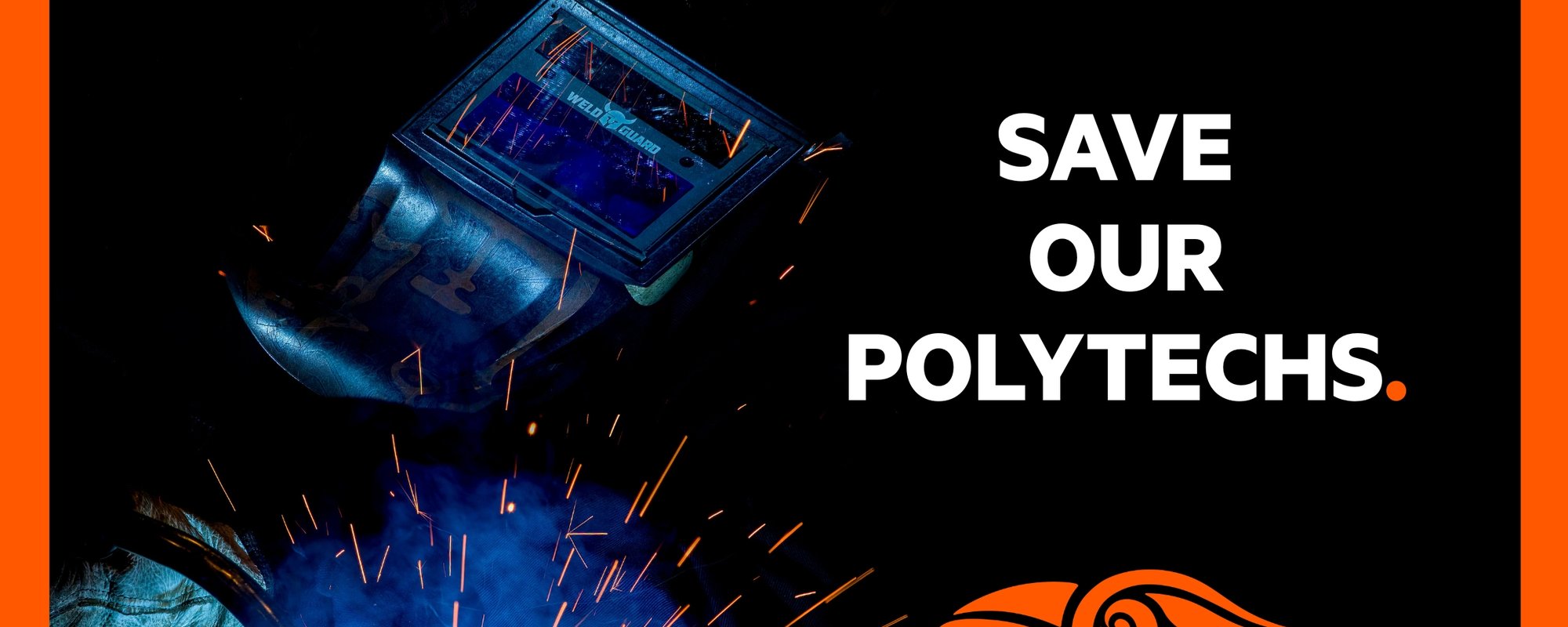“Save Our Polytechs” – Francisco Hernandez, Greens.
Nov. 25, 2025
Kia ora friends and comrades within the TEU – it’s a privilege to have met so many of you over the past 18 months since I became an MP. From Northland to Invercargill – I have met TEU members and they are all passionate and doing their best at all sectors of tertiary education. It’s a privilege to write to you here, to share what I have learnt from my travels across the motu and to reflect back some of what you have told me. The Government’s mangling of the vocational educational sector, as well as its underfunding and mismanagement of the wider tertiary sector, has been brutal to witness, and I hope you will be taking extremely well-deserved breaks over the coming summer, so that we are refreshed for throwing out this one-term government next year.
Tertiary education has been a priority portfolio for me since I first became an MP in mid-2024 – not just because of my roots as a student politician and a former stint as a TEC hack, but because tertiary education is so fundamental to the healthy functioning of our economy, environment, and wider society. In an era of vicarious work, fast technological advances and the erosion of state safety nets, Aotearoa New Zealand should be investing heavily into tertiary education and the upholding of academic freedoms and working conditions which support the sector. Unfortunately the current coalition has done the opposite, pushing through a cynical agenda of legislative reform and slashing its tertiary budget year on year – most recently by 6% in Budget 2025 – which has meant delivering less for learners, less for hard working educators and kaimahi, and less for the researchers and academics who are developing the solutions our country so desperately needs.
The Greens have been advocating strongly in the vocational educational space because under the current coalition, our ITPs are amongst those hardest hit and in most need of wider community support. Minister Penny Simmonds’ baffling mission of dismantling Te Pūkenga, and everything she believed that it stood for, could not have come at a worse time for a sector already fatigued from reforms, which is something I have heard countless times in my hui with TEU members across the country.
Learners and kaimahi are making suggestions for better management, better funding and better cross partisan stability. And it is not just educators within our ITPs that are worried. Secondary teachers are speaking up about the declining pathways for our rangatahi, industry groups are scratching their heads in frustration at the lack of coherent workforce planning, and students are worried about their job prospects and planning their own exoduses to Australia. The Greens’ Save our Polytech campaign, run alongside the TEU campaign, calls on the Government to properly fund our polytechnics, to end the cuts, and to make a plan with communities to establish thriving polytechnics across Aotearoa New Zealand. These are important demands that must be met in future years, and must garner wider community support in order to become a reality.
Alongside our conversations with communities, we have dug out information through OIAs and parliamentary written questions which expose the chaotic and undemocratic nature of the Government’s reforms, meaning that their actions have not come without a political price. We've exposed how the Government was warned that splitting up Te Pūkenga could lead to more people staying on jobseeker for longer, that it had an undisclosed contingency fund set aside that we argued must be used to save campuses, and that Minister Simmonds has invariably favoured the Southern Institute of Technology over official advice. While this may surprise few within the tertiary sector, these stories are important to get out into the wider public arena, so that the wider voting Aotearoa New Zealand public understand the extent of destruction that this government has caused, and back future calls for the rebuilding of the sector.
The Greens’ tertiary policy states our commitment to working towards free tertiary education, and a commitment to free tertiary within the vocational educational space – such as Australia has with TAFE – could potentially make a huge difference for enrolment rates and for the revival of the sector in years to come. My travels across the motu have deepened my understanding of the impact of vocational educational reforms, the visions that exist for how this sector can be better resourced and better managed, and an appreciation for how much work needs to be done to rebuild the sector under a future government.
The Greens’ Save our Polytech’s petition is still live – Save our Polytechs – and we will be delivering postcards to Minister Simmonds in the coming weeks. The wider Aotearoa New Zealand public understands the value of vocational education, and the Greens will continue to fight for students and kaimahi in the coming year.
As we look into election year, I will be pushing for us to make a broader set of commitments and make tertiary education policy a priority for the Greens. A thriving Aotearoa New Zealand requires a fundamental rethinking of how we treat education as a public good and a strong tertiary sector means a well-educated, productive workforce.
In solidarity,
Francisco Hernandez

